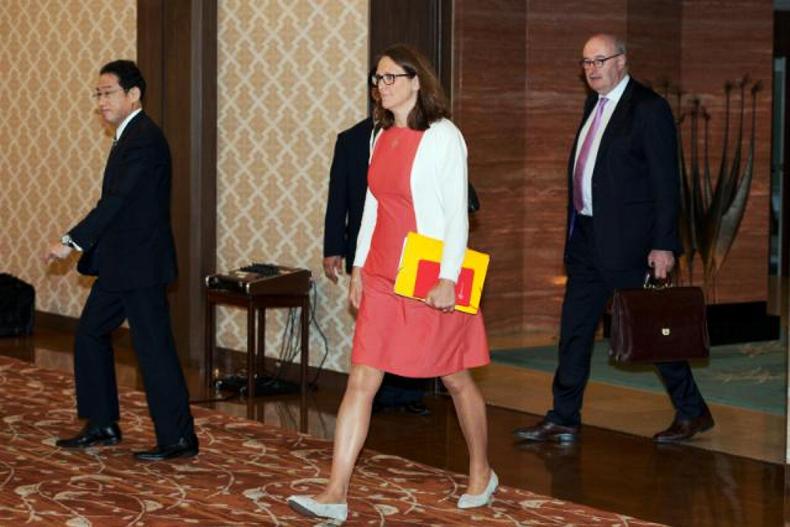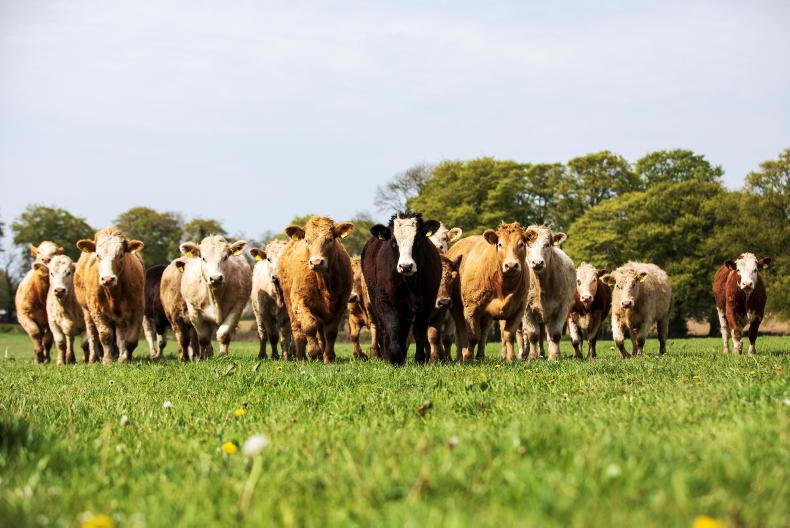The EU’s appetite for trade deals continues. The CETA agreement with Canada is due to take effect provisionally from Friday 21 September and the Commission wants to start discussions with Australia and New Zealand before the end of this year.
Trade deals are often bad news for farmers, particularly beef producers, as access to the lucrative EU market is much sought-after. The allocation of a 50,000t beef quota to Canada was particularly controversial among farmer representatives, though it has been offset somewhat by the successful outcome in negotiations with Japan for agri produce access in July.
However, the deal that holds most fears for farmers is with Mercosur, the group of South American countries that includes Brazil, Argentina, Paraguay and Uruguay among its members who are in the top 10 beef exporters in the world.
They are currently major users of the 69,500t Hilton Beef Quota which gives access to the EU at a much reduced 20% import tariff and Argentina and Uruguay have also access to the High Quality Beef Quota. This is a 48,500t zero-tariff quota that is allocated on a first-come, first-served basis whereas the Hilton Quota is allocated on a per-country basis. Argentina has the largest share of the South American countries on 29,500t, followed by Brazil with 10,000t access, Uruguay on 6,300t and Paraguay with just 1,000t.
Trade deal discussions have been ongoing between the EU and Mercosur since 1999, though with several breaks along the way. The election of a free-trade-orientated president in Argentina late in 2015 brought a renewed energy to discussions. However, the controversial issues for the EU in granting access are ethanol and beef, for which no offer has been made.
It came close in May last year when EU officials suggested to member states that they would make a 78,000t beef quota offer. However, political pressure meant that this was never formalised and since then a study undertaken by the European Commission revealed that beef was one of the categories that would lose out in a trade deal with Mercosur.
The decision by the UK to leave the EU since then has also affected the EU’s ability to absorb further tariff-reduced beef imports. While the EU 28 are overall around 100% self-sufficient, within that the UK is around just 80%. With the UK leaving in 2019, the EU will be mindful of this even though technically all discussions involving the EU until then are on behalf of the EU 28, not EU 27.
EU negotiators could well draw on the children’s story of the Three Billy Goats Gruff for their inspiration. The EU are at an advanced stage of discussions and could hint that the UK with its stated enthusiasm for trade deals post-Brexit might be a more lucrative target for countries with more aggressive agricultural interests than the EU bloc.
Farmers will now be watching with interest what level of offer the EU makes to Mercosur for beef access and on what terms. Mercosur expectations were high but the impact assessment study and Brexit have highlighted the limited capacity for the EU market to absorb further beef imports. The problems in Brazil with Operation Weak Flesh in March, while strictly speaking are of no relevance to trade discussions, will nevertheless have at least a subconscious influence.
Given the outcry last year at the prospect of a 78,000t quota being offered and the events that have taken place since, we can expect a much lower initial offering. Farmers would be of the view that the EU market cannot absorb another kilo of beef, yet DG Trade (which is the ultimate EU department that drives deals) will be pressurising the agriculture sector for concessions.
Given the Commission operates on a collegiate basis, with Commissioners fighting their corner internally and then speaking as one, expect more than a trade deal to be part of the behind-the-scenes discussions.
DG Agri will be on the defensive with Mercosur but Commissioner Hogan will be anxious to continue the building of alliances to secure maximum support for a CAP deal that protects farmers’ interests. He will also have noted the outcry against CETA and the 50,000t quota they secured which was before his time.
The EU will make a beef offer to Mercosur soon, and if a deal is to be sealed in the margins of WTO in December, expect beef access to be one of the last issues agreed, just as it was in Japan.
Commissioner for Trade MalmstrÖm may be leading the EU team but it will be Commissioner for Agriculture Hogan defending agriculture’s interests. With the likely internal disruption to the EU beef market because of Brexit, he needs to proceed with extreme caution.












SHARING OPTIONS